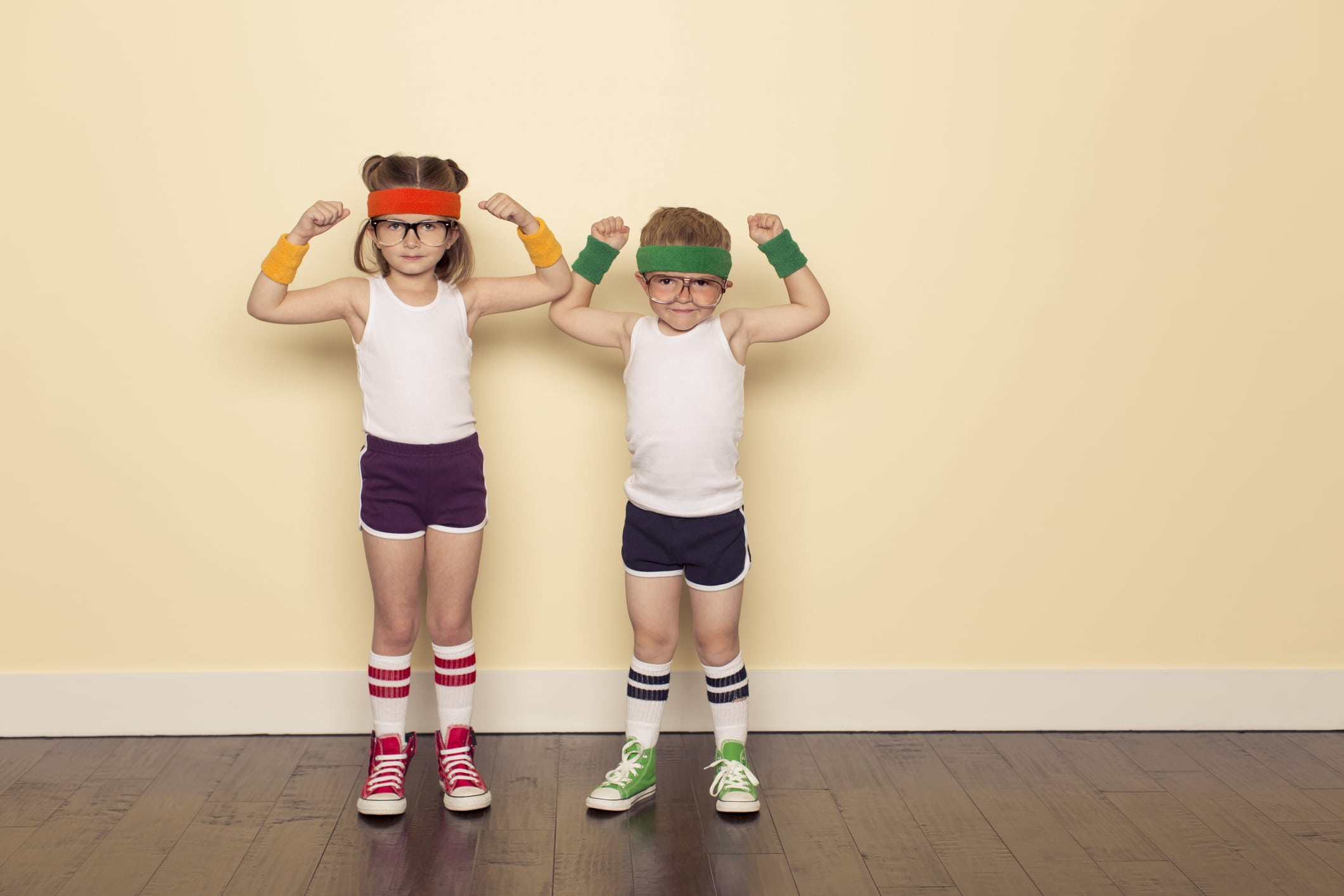[ad_1]
Body image can be such a tricky subject for so many of us. The concept itself refers to how you think about your body and feel within your own skin. Growing up, I had a hard time around puberty, much like everyone else. But I don’t remember my parents ever really talking about body image.
I don’t think it was a thing in the 80s and 90s to focus on it too much. In the age when we were getting hit with the low-fat craze and aspiring to crazy ideals, it was hard not to be down on ourselves. I still internalize this sometimes and place too much emphasis on the scale. But I have learned to relax more about it since having kids.
This acceptance of myself is vital in showing my kids how to deal with their own body image. If I’m down on myself all the time about my body or make disparaging remarks about myself, they will pick up on this and find a way to apply it to themselves. Kids are little sponges who love to repeat everything we say. We can do certain things to help our kids with body image and add to their confidence.
The Importance of a Positive Body Image
How you look at your body will impact you for your entire life. It has a long-term impact on mental health, weight, and physical health. This can be addressed early as toddlers and progress as they age, so monitoring your reactions to your own and others’ bodies is essential. If you have a negative body image, you are at higher risk for eating disorders, low self-esteem, and depression. Having a positive body image can help with your confidence, and you may feel better about your place in the world. We want our kids to be happy, healthy, and confident in themselves, so positive body image is important.
Do’s and Don’ts
Do set a good example and be mindful when talking about body image.
The most important thing you can do for your kids is to set a good example. If you make comments about your body or that you can’t eat certain foods, it will teach them to look at their own bodies that way. I used to let myself get into a huge funk whenever I saw a number on the scale that I didn’t like. Instead of being down on myself, I’m working on focusing on the positive. This teaches my kids how to do this too. It not only helps their concept of body image, but I’m rewiring my own. Being mindful of how I view myself and what I say within earshot is critical in helping my kids have the same positivity.
Do let your child be the one to bring up their body.
Being open to talking about body image is helpful, but let your child be the one to bring up concerns about their body. It is normal for kids to bring this up by the time they hit or around the time of puberty when their bodies are changing. Listen to their concerns and respond with compassion. Offer to do some exercises together, so your kids don’t feel alone.
Don’t use “fat talk.”
Making indirect comments about your child’s or others’ body or weight can be hurtful. Even saying that you shouldn’t eat something the rest of the week because of how you just ate can damage your child’s body image. They will apply how you talk about yourself to themselves. Your child can also pick up on your tone and nonverbal cues when talking about how it’s good or bad that someone lost weight or did something good or bad.
Don’t demonize certain foods.
Many of us tend to think of foods in absolutes. For example, sugar is bad and vegetables are good. By setting foods up this way, we give them power over us and set ourselves up to feel terrible when we eat the “bad” foods. You can explain that certain foods are treats for a reason and are okay to have sometimes. I will remind my kids that eating regular foods before any treats is important because eating only treats can make your body feel bad and lead to a sugar crash. Instead of telling them that certain foods make them fat, I focus on how foods make them feel.
Do discuss how the media works.
The impact of the media can influence how we perceive our bodies. It can get in our heads about how we don’t look as perfect as people on the cover of magazines. By explaining to kids that these photos are created to sell products and are changed to make even celebrities look better, they will see that they aren’t real. Let kids know that these photos aren’t what these models or celebrities look like in real life. This idea pertains to celebrities and the highlight reel pictures we see of our friends and acquaintances on social media.
How to Encourage a Healthy Body Image
Encourage activity from a positive angle.
Movement is essential to health, but how you introduce it to them is key. Instead of forcing the idea of working out on your kids, find things they like to do. When you enjoy the exercises you’re doing you want to do them. The same is true for your kids. You could also join in and do something together like yoga or going for walks to help build some of these good habits.
Encourage healthy eating.
While it’s important not to demonize foods, you should also have plenty of healthy choices for your kids to pick from. Encouraging them to make their own decisions about food will help them understand how to fuel their bodies.
Talk to them about development.
Since they’re still growing, help them understand that this growth and weight gain are normal parts of development.
Fostering a positive body image in our kids is one of the best tools we can give them to navigate this world effectively. It’s natural to look at others and compare, but if they have confidence in their bodies, it may not affect them as much. The biggest thing we can do is set a good example for eating and movement and eliminate as much negative self-talk as possible. These habits may be hard to break, but our kids and we will benefit from them.
[ad_2]
Original Source Link

 PARENTING TIPS
PARENTING TIPS PREGNANCY
PREGNANCY BABY CARE
BABY CARE TODDLERS
TODDLERS TEENS
TEENS HEALTH CARE
HEALTH CARE ACTIVITIES & CRAFTS
ACTIVITIES & CRAFTS


